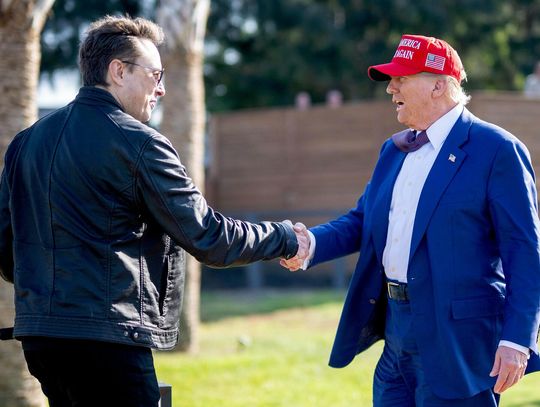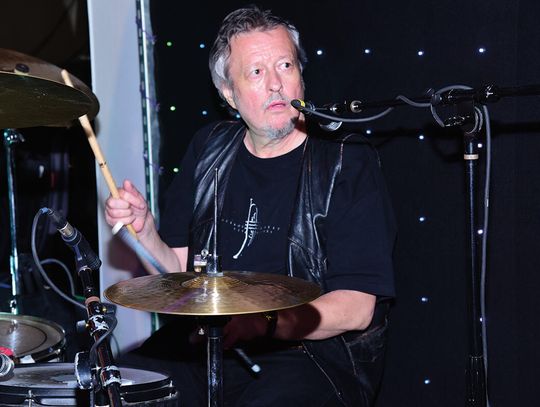W Turkmenistanie odbyło się I Kaspijskie Forum Gospodarcze, w czasie którego spotkali się politycy i przedstawiciele biznesu z państw regionu. Zgodnie z oczekiwaniami, wydarzenie stało się dogodnym pretekstem do tego, by poszczególni decydenci mogli ogłosić szereg deklaracji i porozumień. Wśród publikowanych doniesień szczególnie interesujące wydają się przy tym te, które dotyczyły wspieranych przez USA i UE planów budowy Gazociągu Transkaspijskiego.
Na przestrzeni minionego roku wielu komentatorów wskazywało, że znacząco wzrosły szanse na zbudowanie rozważanego już od dwóch dekad Gazociągu Transkaspijskiego – podmorskiego połączenia, które umożliwiałoby eksport turkmeńskiego gazu (czwarte największe rezerwy na świecie) przez Azerbejdżan w kierunku Europy z pominięciem Rosji. Źródłem ich optymizmu stało się ubiegłoroczne podpisanie przez państwa nadbrzeżne Konwencji Kaspijskiej: dokumentu, który miałby stanowić bazę dla uregulowania spornego w wielu obszarach statusu Morza Kaspijskiego. Tekst konwencji stwierdza bowiem, że co do zasady w ramach akwenu ma być gwarantowana swoboda układania rurociągów, jeżeli tylko zgodzą się na to państwa, przez których wody miałaby przebiegać nowa infrastruktura. Tym samym, w teorii faktycznie powinno to otwierać drogę do budowy Gazociągu Transkaspijskiego. Jak często jednak bywa, diabeł tkwi w szczegółach.
Po pierwsze, nie wszyscy sygnatariusze Konwencji zdążyli ją już ratyfikować – choć od podpisania dokumentu minął rok, to stosownych procedur wciąż nie dopełnił jeszcze Iran i Rosja (choć ta ostatnia zapowiada, że wkrótce to uczyni). Po drugie, dla ewentualnej budowy Gazociągu Transkaspijskiego wciąż potrzebna pozostaje dodatkowa zgoda między Azerbejdżanem a Turkmenistanem co do tego, jak wytyczyć dzielącą je granicę morską (sami Azerbejdżanie wskazują, że to bardzo delikatna kwestia, wymagająca czasu). Po trzecie wreszcie, Konwencja Kaspijska zakłada, że wszystkie państwa z dostępem do akwenu będą miały prawo do opiniowania potencjalnej inwestycji pod kątem wpływu na środowisko naturalne. To zaś, co sugerują złożone w czasie Forum Kaspijskiego deklaracje, będzie zapewne wykorzystywane przez przeciwników projektu w regionie do blokowania jego realizacji.
Rosja i Iran przeciw gazociągowi
12 sierpnia, a więc jeszcze w czasie trwania Forum Kaspijskiego, głos w sprawie zabrał rosyjski wicepremier Siergiej Prichodko, który wyraźnie podkreślił, że państwa nadbrzeżne, a więc również Federacja Rosyjska, będą uczestniczyć w ewentualnej ocenie oddziaływania środowiskowego dla Gazociągu Transkaspijskiego. W tym kontekście dodał też, że już samo zagwarantowanie takiej możliwości powinno jego zdaniem świadczyć o tym, że „ochrona unikalnego ekosystemu Morza Kaspijskiego ma bezwzględny priorytet względem jakichkolwiek hipotetycznych projektów gospodarczych”. Jak się wydaje, wypowiedź tę nietrudno odczytywać jako sugestię, że plany budowy Gazociągu Transkaspijskiego mogą być oprotestowywane przez Rosję, która jako jedyna może obecnie pośredniczyć w dostawach turkmeńskiego gazu do Europy.
Nawet bardziej bezpośrednia okazała się przy tym być deklaracja dyrektora Irańskiego Państwowego Koncernu Gazowego, który wprost stwierdził, że budowa gazociągu po dnie Morza Kaspijskiego mogłaby skutkować „poważnymi szkodami” dla środowiska naturalnego w regionie, przez co „Iran jest przeciwny” temu projektowi. Podobnie jak w przypadku Rosjan, również strona irańska zdaje się jednak przy tym lobbować własne interesy, a nie tylko dbać o ochronę przyrody. Jak zaproponował bowiem wspomniany przedstawiciel Irańskiego Państwowego Koncernu Gazowego, alternatywnym rozwiązaniem dla celów tranzytu gazu do Europy miałoby stać się wykorzystanie… irańskiej infrastruktury przesyłowej.
UE oferuje wsparcie, Turkmenistan mąci ws. spółek
Choć zarówno Rosjanie, jak i Irańczycy starali się studzić nastroje wokół projektu Gazociągu Transkaspijskiego, w czasie organizowanego przez Turkmenistan forum padły również głosy za realizacją inwestycji. W szczególności Unia Europejska publicznie wezwała do zintensyfikowania rozmów nt. możliwego wsparcia finansowego projektu za pośrednictwem unijnych funduszy na rzecz integracji rynków gazowych. Tym samym można przyjąć, że Bruksela potwierdziła tym samym swoje zainteresowanie budową rurociągu.
Niemal jednocześnie, turkmeńskie media poinformowały także, że chęć realizacji kontraktu na wykonawstwo ewentualnego połączenia miało zadeklarować konkretne już konsorcjum. Zgodnie z tymi doniesieniami, Gazociąg Transkaspijski chciałyby wybudować europejskie spółki – Edison Technologies GmbH, MMEC Mannesmann GmbH, Air Liquide Global E&C Solutions – we współpracy z chińskim SINOPEC Engineering Group. Sęk jednak w tym, że samo francuskie Air Liquide zdążyło już… kategorycznie zaprzeczyć podawanym informacjom, a pozostali konsorcjanci zachowują jak na razie milczenie. W rezultacie więc wydaje się, że ewentualne zainteresowanie europejskich spółek budową Gazociągu Transkaspijskiego wciąż pozostaje jedynie kwestią przyszłości.
Przywołane deklaracje dotyczące planów budowy Gazociągu Transkaspijskiego z pewnością zostały odebrane w Waszyngtonie z zainteresowaniem – nie przypadkiem przed kilkoma miesiącami prezydent Donald Trump adresował do prezydenta Turkmenistanu specjalny list, w którym wyrażał nadzieję na realizację projektu. Jak się wydaje, Biały Dom liczy, że budowa rurociągu przysłuży się stabilizacji politycznej regionu, pozwoli na dalszą dywersyfikację dostaw gazu do Europy, ale także stworzy szanse dla amerykańskich spółek. Te bowiem, i nie jest to już fake news turkmeńskich mediów, mogłyby zapewne chcieć uczestniczyć w ewentualnym dalszym podziale turkmeńskich licencji wydobywczych.
Mateusz Kubiak
absolwent Studiów Wschodnich i Stosunków Międzynarodowych na Uniwersytecie Warszawskim. Pracuje jako analityk sektora energetycznego, zajmuje się również zawodowo regionem Kaukazu i Azji Centralnej.
The Warsaw Institute Foundation to pierwszy polski geopolityczny think tank w Stanach Zjednoczonych. Strategicznym celem tej organizacji jest wzmocnienie polskich interesów w USA przy jednoczesnym wspieraniu unikalnego sojuszu między dwoma narodami. Jej działalność koncentruje się na takich zagadnieniach jak geopolityka, porządek międzynarodowy, polityka historyczna, energetyka i bezpieczeństwo militarne. The Warsaw Institute Foundation została założona w 2018 roku i jest niezależną organizacją non-profit, inspirowaną bliźniaczą organizacją działającą w Polsce – Warsaw Institute.
The Warsaw Institute Foundation is Poland's first geopolitical think tank in the United States. The strategic goal of this organisation is to bolster Polish interests in the U.S. while supporting the unique alliance between the two nations. Its activity focuses on such issues as geopolitics, international order, historical policy, energy, and military security. Established in 2018, The Warsaw Institute Foundation is an independent, non-profit organization inspired the twin Poland-based Warsaw Institute.
Reklama











